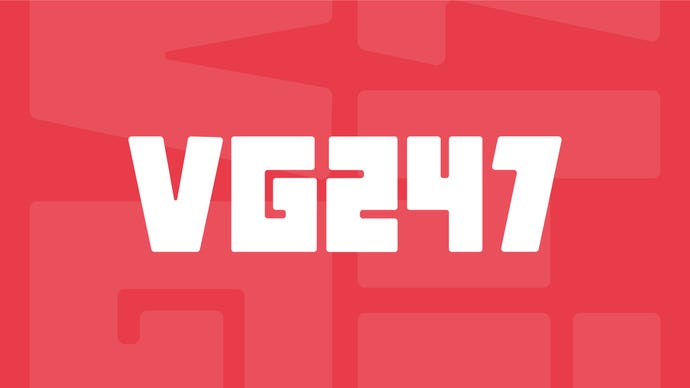37% of 16-49 year-olds in UK are "active gamers"
A piece of Nielsen research has shown that in the UK, 37 percent of those aged between 16 and 49 describe themselves as "active gamers," defined as currently playing games on a console, handheld device or PC.
The report found that the same is true for 28 percent of the population in the same age range in Spain and Finland.
Included in the research was a rather dubious fact that 93 percent of those questioned across 15 countries in Europe recognised PEGI symbols.
Press release after the link. Thanks, Maxconsole.
Press Release
Europeans Play Videogames For Fun, Relaxation And To Keep Fit Mentally
ISFE-Nielsen Research Shows Gaming As A Top Leisure Activity For Kids, Adults And Parents Across Europe
Brussels, Belgium, 27 May 2008 – ISFE, the Interactive Software Federation of Europe, today revealed new research findings that reflect the evolving trends among European videogame players. Across 15 markets, people between the ages of 16 and 49 said they spend nearly as much time gaming as they do watching TV or socializing with family and friends, and opt for gaming as a fun way to spend time while stimulating the imagination and staying mentally fit .
The results of the research project, conducted by Nielsen Games on behalf of ISFE, demonstrate the current make up of the European market for videogames. The findings put to rest some commonly held misperceptions about today’s gaming community.
- Videogames rate among top common leisure activities for Europeans. 40% of people play between 6 -14 hours a week, alongside time spent watching TV, surfing the Internet or visiting with friends and family
- Videogames are recognized as offering unique benefits in relation to other mainstream entertainment such as TV and film. 72% play videogames for fun, 57% play as a way to stimulate the imagination, 45% say gaming makes them think. The social aspect of gaming online with others is a strong secondary motivator for game players
- Europeans are playing responsibly at home. 81% of parents who game do so with their children. More than half of gaming parents always monitor what games their children play, as well as their game purchase choices
- For non-gamers, there appears to be little to no negative sentiment towards videogames. Half of those who don’t play (48%) cite simple lack of time as main reason for not playing videogames.
Jens Uwe Intat, Chairman of the ISFE board said: “Our research findings cement what those who work in the industry understand as a given, namely that videogames hold a recognized place in today’s entertainment culture. The people that are videogaming today are of all ages, of both genders and of all nationalities. As an industry, we offer a huge variety of entertainment choices for all tastes and skill levels, and adult tax payers, grandparents and kids alike are playing in the way that suits them best.”
Recognition of PEGI, the European age rating system for videogames
Across the 15 countries surveyed, recognition of the Pan European Gaming Information (PEGI) age rating symbols is nearly universal (93%). When considering the PEGI age rating symbols, almost half of all parents surveyed said they find the current system either ‘extremely useful’ or ‘very useful’.
“With about 70% of the top selling games within the major European regions [1] being rated 3+, there is a great variety of games that are suitable not only for the so called ‘hard core gamer’, but actually for the entire family. Parents have a great choice today when it comes to choosing a game for their kids, it is great to see that PEGI ratings and descriptors are proving to be recognized as a helpful tool by parents”, adds Patrice Chazerand, Secretary General of ISFE.
Key European markets driving sector growth
The European market represents a greater share of global videogame-related sales than ever before. In 2007, interactive software sales in nine major European markets [2] reached an estimated level of €7.3 billion. Representing games software alone (i.e. the games themselves, excluding the revenue generated by sales of hardware), this figure represents an increase of 25% year on year. The UK alone generated €2.3 billion in revenue, followed by France (€1.6bn), Germany (€1.4bn), Spain (€0.7bn) and Italy €0.6bn) [3].
Profile of Gamers: A Snapshot across Europe
Based on a nationally representative sample from the UK, Finland and Spain [4], chosen to represent a range of European geographies and stages of market development, the proportion of the adult population playing video games has reached very significant levels:
• In the UK, 37 % of the population aged between 16 and 49 describe themselves as active gamers defined as currently playing games on a console, handheld device or PC. The same is true for 28% of the population in Spain and Finland.
• Videogames are not restricted to the ‘younger crowd’; 33% of those aged 30 to 49 in the UK classify themselves as active gamers, followed by 23% in Finland and 16% in Spain.
• Females represent a sizeable proportion of the games market: 29% of women aged 16 to 49 in the UK, and 18% in Spain and Finland, describe themselves as active gamers.
Over six in ten gamers say they play online. Online gaming transcends gender and age, with 62% stating online play as a key part of the overall gaming experience.
• Two in ten European gamers have completed graduate or post graduate degrees. 17% of gamers categorized themselves in professional or service-related industries (i.e. law, medicine, banking), while a further 12% said they work in sales, entrepreneurial areas or management.
• 72% of European gamers use their games console as a multimedia device for broader media activities such as accessing the Internet, playing DVDs or listening to MP3’s.

